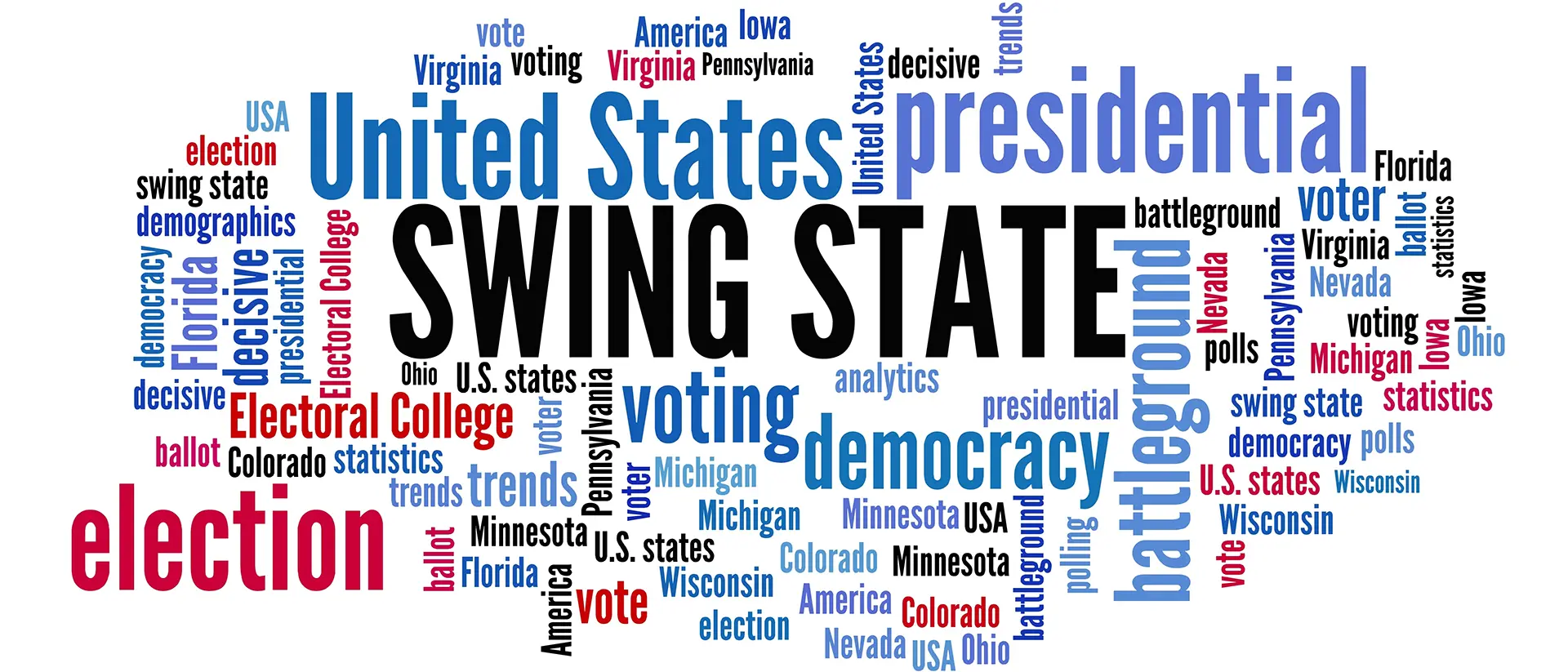
With the 2024 presidential election looming, battleground states are getting a lot of attention from candidates on both sides of the aisle because the outcome can swing either way. State regulators and politicians who have incentives to selectively enforce regulations and policy are also paying attention.
Huseyin Gulen, a professor of finance at Purdue University’s Mitchell E. Daniels, Jr. School of Business, examines these incentives in “The Selective Enforcement of Government Regulation: Battleground States, State Regulators, and the EPA,” which he coauthored with Brett W. Myers from the Rawls College of Business at Texas Tech University.
“Anecdotal evidence suggests that federal political favors are directed towards battleground states, including the selective enforcement of regulation to ease the economic or political costs associated with compliance,” Gulen says. An example is a 2018 regulatory decision to rescind a ban on offshore oil drilling that was opposed by several states. However, only one state was granted an exception — the state of Florida, an important battleground state.
According to Gulen and his coauthor, the political incentives that result in some states being treated differently from others are related to the way that presidential elections are structured. In the U.S., the outcome of a presidential election is determined by the Electoral College system, with the candidate who receives a plurality of votes within a state typically receiving all of that state’s electoral votes.
The winner-take-all nature of the system provides a clear set of incentives for presidents and presidential candidates to direct both policy favors and campaign resources toward battleground states. Further, because of the importance of the office of president, these incentives also affect the behavior of allied politicians and political parties, as well as regulators and other interest groups.
For their study, the researchers examined violation rates of the Clean Water Act (CWA) in battleground states to determine if regulation is selectively enforced. The EPA is responsible for enforcing the CWA, which requires facilities to obtain permits to discharge water into surface waters. The study uses permit data from the EPA to identify and compare 6,763 unique facilities along the border between battleground and non-battleground states. The research shows that facilities located in battleground states experience lower violation rates of the Clean Water Act relative to facilities in non-battleground states.
“We find that the Electoral College system creates incentives that result in widespread selective enforcement of government regulation in battleground states, from politicians asserting control over regulatory agencies to risk-averse regulators seeking to avoid conflict with politicians to attempts by regulators to affect electoral outcomes,” Gulen says. “Our evidence is consistent with the idea that government regulators – in our case, the EPA and state-level regulators – do not uniformly enforce economically important regulations, supporting our results of a causal relationship between battleground state status and favorable treatment.”
Gulen and his coauthor note that regulation often creates winners and losers, and to the extent that regulatory enforcement imposes economic costs, the selective reduction of regulatory burdens can present a tangible economic benefit to critical voters in battleground states.
“Existing research on the impact of government regulation has largely focused on whether it benefits or harms social welfare,” Gulen says. “We examine an equally important and related question: is regulation uniformly enforced? Our research shows that selective enforcement of government regulation represents an appealing mechanism through which politicians can deliver policy favors toward battleground states to maximize their political support while minimizing political costs.”